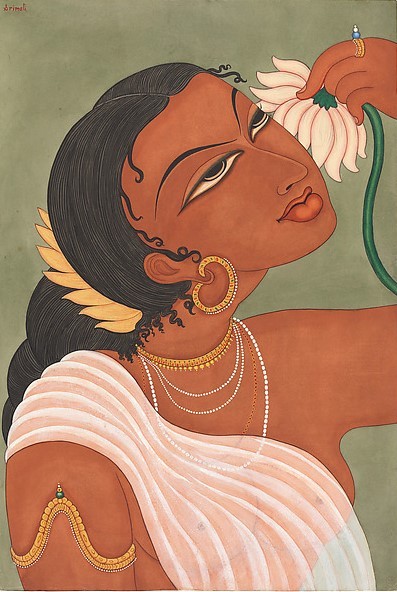ॐ, Self-Realized, Cat Dad, 80's kid, ENFP, Sidereal-Astrology, Yoga on the Bluff, etc... (Lakewood, California)
Don't wanna be here? Send us removal request.
Text
The Ascendant is important!
Here’s why:
The Ascendant does not just show “how people see you.”
The Ascendant signifies how you’ve entered into the world. It represents your birth, your first breath, and your first, strongest view of the world.
The 1st House rules over the head. The Ascendant can not only have a say on your facial appearance, but the overall vibe of your appearance as a whole.
The Ascendant serves as a spreadsheet for the placement of your planets. Without the Ascendant, you will not know which Houses your planets are in.
The Ascendant also sets the order of the signs ruling the Houses. The signs are in order on your natal chart, and the fact that the order can’t be changed shows that the Ascendant has a strong effect on the rest of your Houses. This implies that the rest of the Houses are connected in some way to the Ascendant.
The Ascendant is often accepted in many aspect patterns due to its important and visible effects.
The Ascendant is often used as a defense mechanism against the world as a way to keep oneself safe by covering the sign ruled by the 12th House. The defensiveness/covering of the Ascendant goes with the archetypal notion that Aries, the sign naturally ruling the 1st House is always defensive and on-guard from outside forces.
The Ascendant is often used to find one’s karmic lessons and directions in addition to the North and South Node.
The Ascendant is the start of the natal chart and is arguably one of the most important angles in the natal chart.
8K notes
·
View notes
Quote
Azar Nafisi, Reading Lolita in Tehran (via books-n-quotes)
You get a strange feeling when you’re about to leave a place. Like you’ll not only miss the people you love but you’ll miss the person you are now at this time and this place, because you’ll never be this way ever again.
0 notes
Photo

“What is subject to death, dies. I am not exempt.” ~ The Buddha
111 notes
·
View notes
Photo

Matangi Jayanti.
Matangi Jayanti is the day dedicated to Goddess Matangi, it falls on April 28, 2017. Again I’ve been having difficulty finding articles about Maa Matangi to post for this day, some are great but long winded, others are a little imaginative, so I’ve put finger to iPad again and made a humble attempt to write something, bear with me….
Matangi is the ninth or fifth (depending on which tradition you follow) of the Mahavidya forms of the Divine Mother. As a Vidya She represents speech, vocal articulation. She is often referred to as the ‘Tantric Saraswati’, though it’s not a title that sits easy with me for several reasons, firstly huge sections of Tantra are dedicated to the worship of Saraswati so surely Saraswati is the Tantric Saraswati? Secondly it sounds like something you’d read in a salacious Wendy Doniger or God forbid Jeffrey Kripal book, an academic attempt to categorise orthodox Hinduism from the heterodox, like the worshippers of Saraswati (orthodox) are pious Hindus doing stuff with flowers and the worshippers of Matangi (heterodox) are naked in a cremation ground drinking wine from a skull and eating a half barbecued human arm. The best way to understand any form of the Divine Mother is to sit attentively with a qualified Guru and learn the scriptures from Him/Her. There is however a connection between the two Goddesses, much of their iconography is similar, they share a pranam Mantra and Saraswati is worshiped at Kamakhya as Matangi, also the connection with speech, language, articulation is obvious, ultimately the Goddess is one.
The popular legend of Matangi tells of lord Shiva disguising Himself as a door to door ornament vendor and calling on Parvati at Her fathers home. Shiva tells Parvati that she can have anything She wants as long as She fulfils His desires, astonished at the brazenness of the 'vendor’, Parvati realises the trick and agrees to the challenge. Later Parvati visits Lord Shiva disguised as an outcast girl, infatuated by Her beauty Shiva asks Her who She is? The 'outcast girl’ tells Him She is performing austerity to become a Goddess, Shiva tells Her that if She agrees to marry Him He will make Her a Goddess. The Divine play of the loving couple comes to an end with Shiva giving Her the name Matangi.
Matangi is associated with the accumulation of mystic powers, particularly influence and control over others. The Tantric path is almost like a shortcut to perfection, but the shortcut takes the practitioner through a dangerous jungle full of pitfalls and wild animals along the way. These mystical powers are them very pitfalls, control over others can mean exactly what it say on the tin or the false Guru, the genuine spiritual aspirant prays to Matangi to gain control over themselves not others. Matangi is also associated with impurity, the outcasts and outsiders. In one respect we are all children of Matangi and regardless of cast or creed we are all equal, nobody is worth more points than anyone else, in another sense the Goddess is all things, purity/impurity, orthodox/heterodox and further still untouched by any such duality, She is the Divine Mother of all.
115 notes
·
View notes
Photo

Goddess Matangi - Hand Coloured Lithograph Print,Bengal, c1880’s
144 notes
·
View notes









